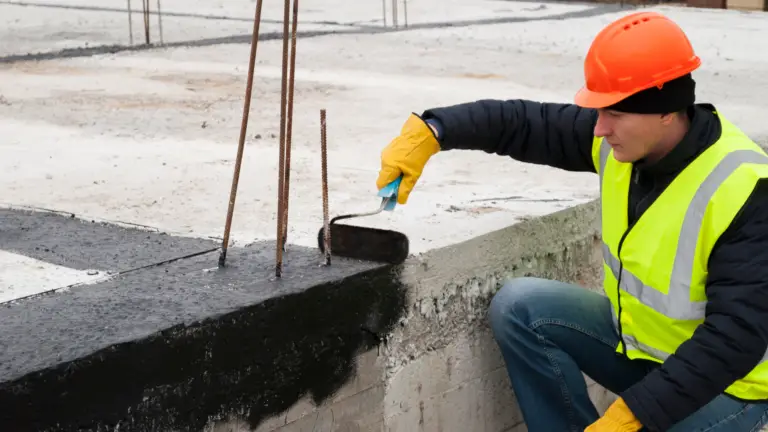The waterproofing of a house is a crucial process in the construction and maintenance of homes. In this article, we will explore the reasons why it is important to waterproof a house, the functions it serves, and the negative consequences that can arise if it is not done properly.
For more information about AH construction click HERE
To understand the importance of waterproofing, it is essential to consider that constant exposure to moisture can have devastating effects on the structure and interior of a house. Without proper protection against water and moisture, there will be leaks, seepage, and long-term damage that can compromise the integrity of the building and affect the quality of life of its occupants.
So, what is the purpose of waterproofing a house? The answer is simple: waterproofing acts as a protective barrier against the penetration of water in different areas of the construction. Here are some of the main functions of waterproofing:
Prevention of leaks and seepage:
One of the most obvious reasons to waterproof a house is to prevent water from seeping through roofs, walls, and foundations. Leaks and seepage can cause damage to the structure and construction materials, as well as create health problems due to mold and dampness.
Protection of the structure:
Moisture can weaken the foundations and walls of a house, putting the stability of the building at risk. Proper waterproofing helps prevent structural damage, avoiding costly and dangerous problems in the long run.
Preservation of the interior:
Moisture can negatively affect the interior of a house, damaging floors, walls, furniture, and other elements. By waterproofing, a barrier is created that protects the interior of the home from the harmful effects of water and moisture.
Energy savings:
Waterproofing can also contribute to energy savings by preventing the infiltration of cold or hot air from the outside. This means that the house will be more efficient in terms of heating and cooling, resulting in lower utility bills.
Now, what happens if a house is not waterproofed?
The consequences of not waterproofing can be serious and costly. Without proper protection against water, the following problems can occur:
Structural damage:
Constant moisture can damage the foundations, walls, and other structures of the house, which may require expensive and complicated repairs.
Health issues:
The presence of moisture and mold in a house can trigger respiratory problems, allergies, and illnesses. Additionally, humid environments are conducive to the proliferation of mites and other harmful organisms.
Deterioration of materials:
Moisture can negatively affect construction materials such as wood, plaster, and concrete, leading to their premature deterioration and requiring replacement.
Loss of comfort:
Moisture inside a house can create a sensation of cold, unpleasant odors, and an overall feeling of discomfort. This can negatively affect the quality of life of the residents.
In summary, the waterproofing of a house is essential to protect it from the damages caused by moisture and water. By creating an effective barrier against leaks and seepage, the integrity of the structure is preserved, health problems are avoided, and a safe and comfortable environment is ensured. Failing to properly waterproof can result in costly damages and health risks for the occupants. Therefore, it is crucial to rely on qualified professionals and use high-quality materials to carry out this process in all stages of construction and maintenance of a house.
To view AH Construction’s projects click HERE




